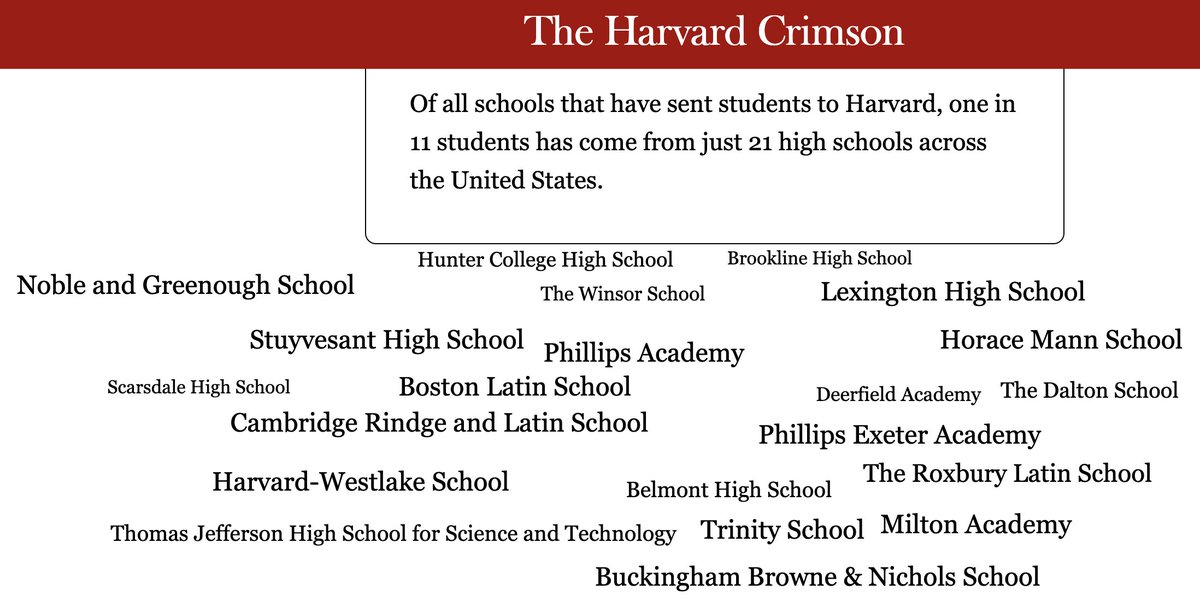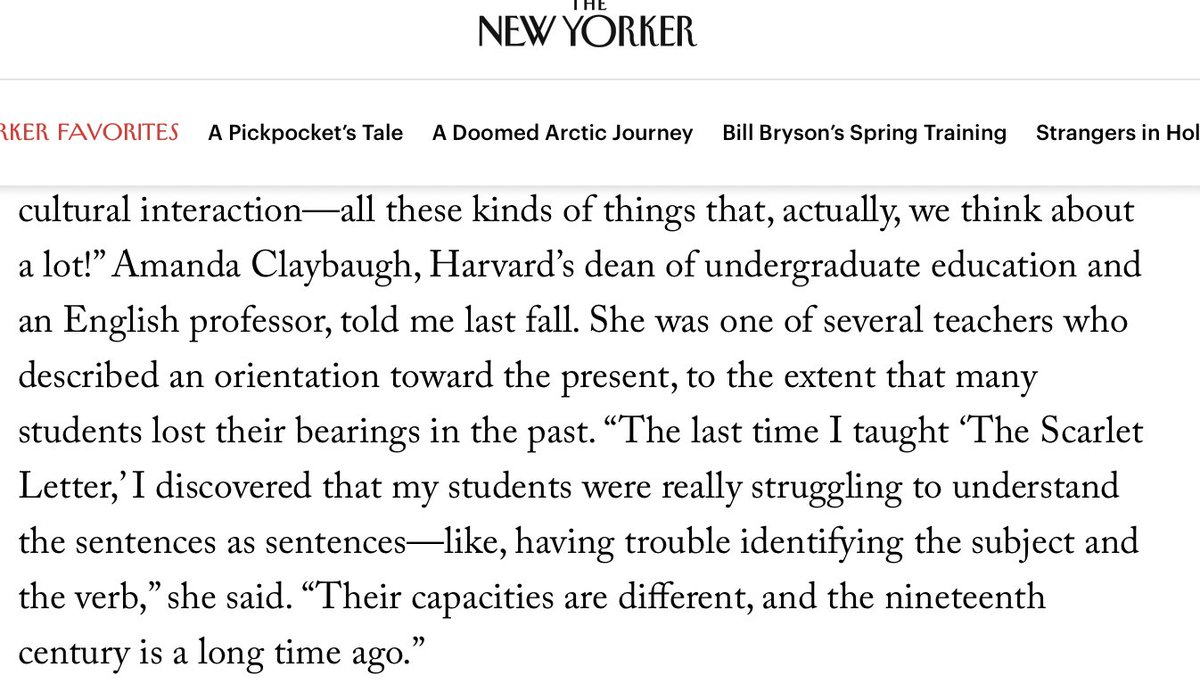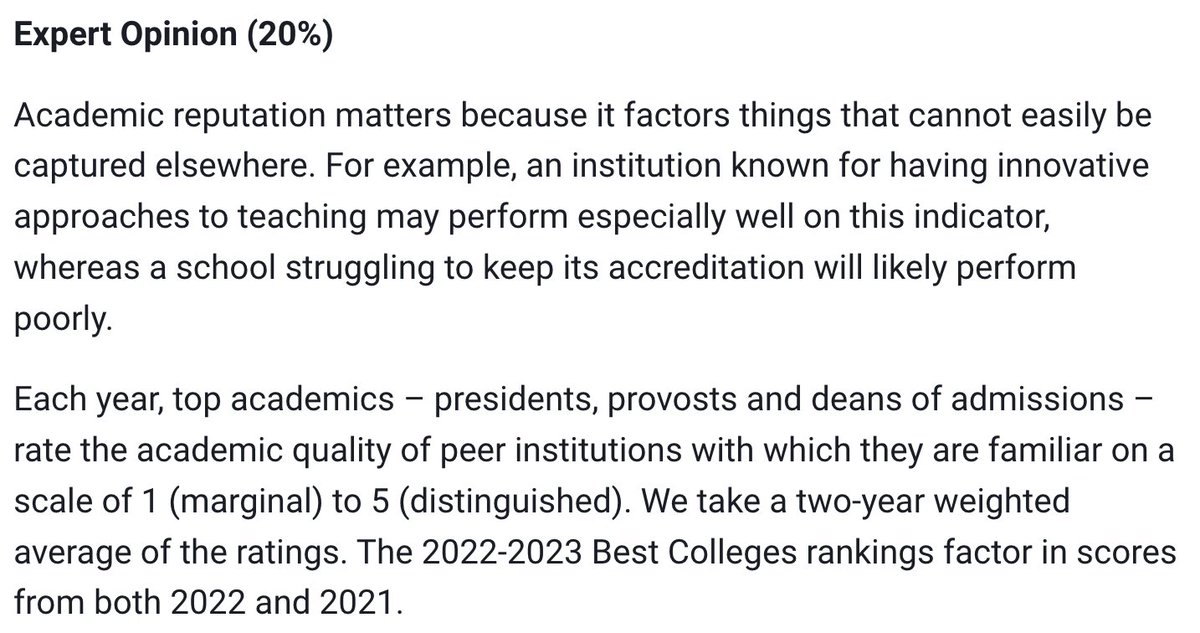Place: New York City
Time: 2000-2010 (roughly)
What You're Seeing: The percentage of students who came from each income quintile (parents)
Which quintile is the wealthiest: I think you know.
Time: 2000-2010 (roughly)
What You're Seeing: The percentage of students who came from each income quintile (parents)
Which quintile is the wealthiest: I think you know.

Place: New York City (The Bronx)
Time: 2000-2010 (roughly)
What You're Seeing: The percentage of students who came from each income quintile (parents)
What I'm feeling: ashamed of the alma mater #WWJD
Time: 2000-2010 (roughly)
What You're Seeing: The percentage of students who came from each income quintile (parents)
What I'm feeling: ashamed of the alma mater #WWJD

Place: New York City
Time: 2000-2010 (roughly)
What You're Seeing: The percentage of students who came from each income quintile (parents)
Which quintile is the wealthiest: I think you know.
Time: 2000-2010 (roughly)
What You're Seeing: The percentage of students who came from each income quintile (parents)
Which quintile is the wealthiest: I think you know.
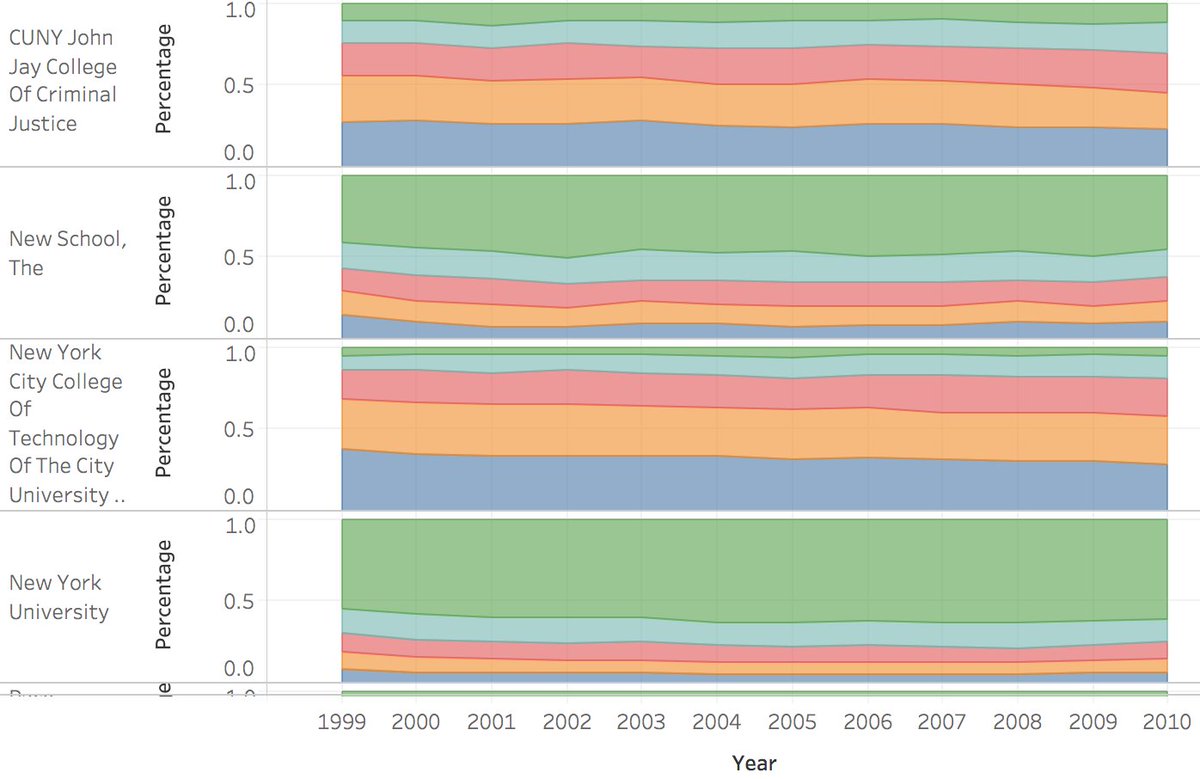
Place: New York City
Time: 2000-2010 (roughly)
What You're Seeing: The percentage of students who came from each income quintile (parents)
Which quintile is the wealthiest: I think you know.
Time: 2000-2010 (roughly)
What You're Seeing: The percentage of students who came from each income quintile (parents)
Which quintile is the wealthiest: I think you know.
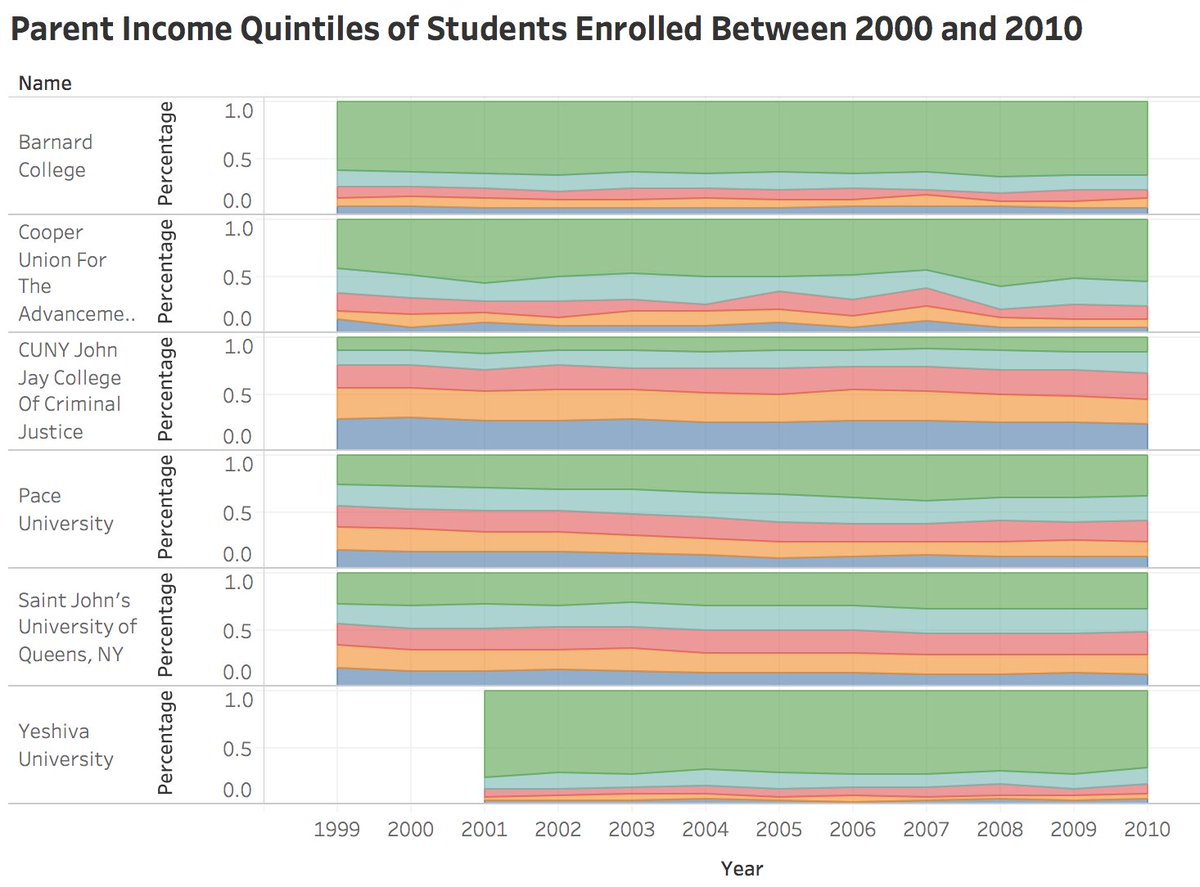
Source: @OppInsights opportunityinsights.org/data/?geograph…
Big thanks to @JonBoeckenstedt for the Tableau assist.
Big thanks to @JonBoeckenstedt for the Tableau assist.
More to come on all this. Boston, UCs, Catholic colleges. What other groups would be interesting to look at?
• • •
Missing some Tweet in this thread? You can try to
force a refresh


